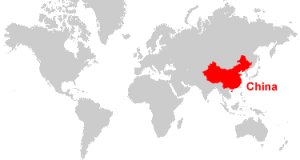
In real economic terms, and as the second-largest economic power in the world since 2005, China has been a global player for a few decades.
In global financial market terms, however, China became interesting to the rest of the world for the first time this Summer.
I use the word ‘interesting’ the way it’s meant in the disguised curse ‘may you live in interesting times.’’[1] Interesting financial problems in China became the world’s problems for the first time recently, as we witnessed the first global financial market-swoon attributed to trouble in Chinese financial markets.
Economy v. financial markets
China right now represents a case study in the difference between an ‘economy’ and ‘financial markets.’
We kind of already know that these two things – ‘economy’ and ‘financial markets’ – are distinct, but linked. Also, they interact.
The 2008 Crash in the United States was an example of trouble in the financial markets crashing the real economy, as excessive losses from sub-prime structured mortgages, followed by further excessive losses from illiquid structured products among financial firms, eventually caused construction halts, unemployment, and foreclosures – in other words, real-economy misery.
Causation just as typically runs the other way, in which a decline in real-economy profits leads to a slow-down in financial volumes and asset prices.
A real economy and its financial markets each influence the other, but can – for a time at least – differ drastically.
The distinction between the real economy and financial markets matters when viewing China’s struggle this year, especially in light of financial market fragility.
The real Chinese economy
I think we in the US forget to acknowledge – or in our narrow-minded patriotic competitiveness we prefer to overlook – the economic miracle of China.













Leave A Comment